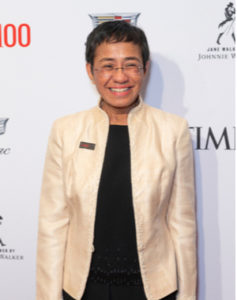15 Aug 2020 On the Screen (MD 2020-3)
Nyon (Switzerland) 2020
At the 51st Festival Visions du réel Nyon (April 17 – May 2, 2020), the interreligious watched and discussed the 14 films of the competition for long films due the Covid-19 situation online and awarded its Prize of CHF 5’000, donated by the Swiss Catholic Church, the Reformed Churches in the French-speaking part Switzerland (CER) and its Media Department Média-pro, and the Swiss Federation of Jewish Communities, to the film Off the Road / Fuera del camino directed by von José Permar (Mexico/USA 2020).








 Image: United Nations COVID-19 response[/caption]
In times of disaster, the need to engage with affected communities to ensure useful, timely and accurate information is mutually shared is increasingly recognised as essential.
Image: United Nations COVID-19 response[/caption]
In times of disaster, the need to engage with affected communities to ensure useful, timely and accurate information is mutually shared is increasingly recognised as essential. 


 Maria Ressa. Photo: Lev Radin/Shutterstock[/caption]
On June 15, 2020, a court in the capital Manila, convicted former CNN journalist Maria Ressa and former Rappler writer Reynaldo Santos Jr. of cyber libel for publishing an article that implicated a prominent businessman who was allegedly involved in human trafficking and drug smuggling.
Maria Ressa. Photo: Lev Radin/Shutterstock[/caption]
On June 15, 2020, a court in the capital Manila, convicted former CNN journalist Maria Ressa and former Rappler writer Reynaldo Santos Jr. of cyber libel for publishing an article that implicated a prominent businessman who was allegedly involved in human trafficking and drug smuggling.